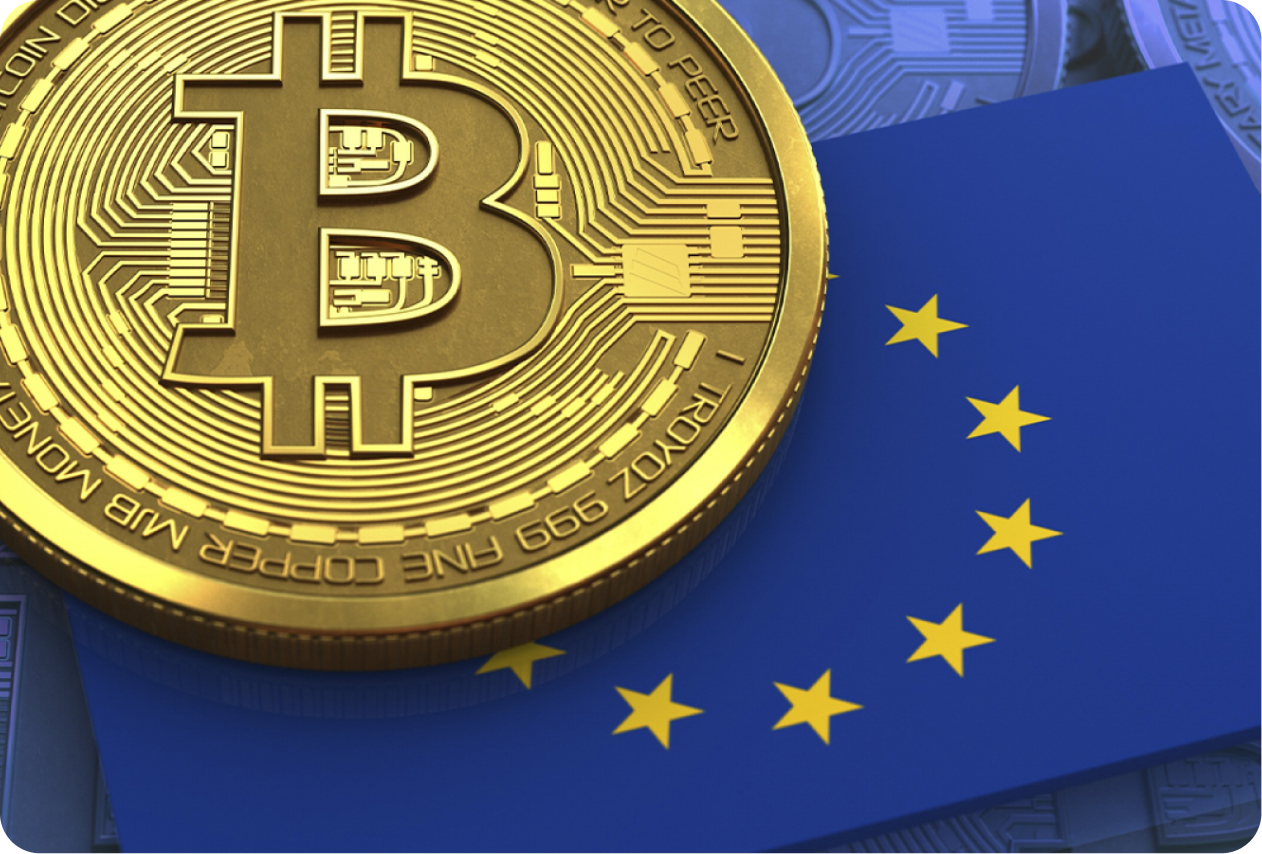This week in the crypto world, Bitcoin continues to capture attention, while blockchain adoption expands globally. Meanwhile, a bigger hacking incident shook the U.S., and Europe made strides as the second-largest crypto economy. Let’s explore the key developments from the past week crypto news and see how Bitcoin’s potential as a reserve asset is gaining momentum.
Bitcoin Poised for Gains as Optimism Grows

This week, Bitcoin’s price fluctuated between €60,600 ($64,000) and €63,800 ($67,500), briefly reaching nearly €64,000 ($68,000) before dropping slightly. Despite the volatility, analysts remain optimistic about Bitcoin’s future. Some predict it could rise as high as €85,000 ($90,000), especially if Donald Trump wins the 2024 U.S. presidential election, as he has promised to support crypto and remove regulatory barriers. In the meantime, other traders believe Bitcoin will reach new highs of around 75,000€ by the end of November, regardless of the election outcome.
Meanwhile, Bitcoin ETFs also saw some turbulence. After briefly seeing outflows, investors quickly returned to Bitcoin ETFs, adding nearly €192.4 million on October 23. These inflows are helping to drive market sentiment, with Bitcoin ETFs seeing continued growth and institutional interest.
Blockchain Adoption Expands with New Global Developments

Last week marked notable advancements in global blockchain adoption. Buenos Aires, the capital of Argentina, integrated a blockchain-based ID system into its miBA app. This new feature is designed to enhance user privacy by storing digital identity data on a decentralized network, allowing residents to manage their personal information securely and independently.
Meanwhile, traditional payment giant Stripe reportedly finalized a $1 billion acquisition of Bridge, a stablecoin platform. The deal underscores the increasing interest from major financial institutions in leveraging blockchain technology to enhance payment solutions. Stripe’s move reflects its strategy to stay at the forefront of innovation in digital finance.
In addition, technology giant Samsung unveiled plans to use blockchain technology to boost the security of its AI-powered smart home devices. The integration of blockchain aims to provide enhanced privacy and security for users as the company continues to expand its ecosystem of connected devices.
Hackers Allegedly Steal $20M from U.S. Government Wallets

Last week, hackers reportedly stole approximately $20 million from cryptocurrency wallets linked to the U.S. government. The breach involved unauthorized access to wallets holding assets seized in criminal investigations, causing significant concern over the security measures employed to safeguard these funds.
The cybercriminals are believed to have exploited vulnerabilities in the wallet infrastructure, though full details on how the breach occurred are still unclear. The attack highlights the growing risk of cyber threats in the digital asset space, particularly as government entities increasingly handle large sums of cryptocurrency through confiscation and regulation. Authorities are investigating the breach, aiming to track the stolen funds and bring those responsible to justice.
Europe Becomes the Second-Largest Crypto Economy

Europe has become the second-largest crypto economy in the world, following North America, with nearly $1 trillion in crypto activity from July 2023 to June 2024. According to a report by Chainalysis, the region made up over 21% of global crypto transactions. The United Kingdom led the way, with $217 billion in crypto value, thanks to its focus on digital payments and stablecoins.
Stablecoins, which are linked to traditional currencies like the US dollar, played a big role in this growth. They saw a huge increase in use, especially for smaller transactions. Europe also saw growth in decentralized finance (DeFi), with new trends like using blockchain for real-world assets like property. Europe’s upcoming crypto regulations, known as MiCA, are expected to support this growing market even more by the end of 2024.
Bitcoin’s Potential as a Reserve Asset Grows Amid Global Risks

A new report titled “Bitcoin: Reserve Asset in Times of Inflation and Geopolitical Risk” by economist Matthew Ferranti highlights Bitcoin’s growing potential as a reserve asset, especially during times of inflation and geopolitical instability. According to the study, Bitcoin’s decentralized nature and limited supply make it an appealing alternative to traditional assets like gold or government bonds, which can be affected by inflation or political decisions.
The report also points out that global investors are increasingly viewing Bitcoin as a hedge against economic uncertainty. As inflation rises and geopolitical tensions increase, Bitcoin’s role as a safe-haven asset continues to strengthen. Analysts suggest that the more unstable traditional markets become, the more attractive Bitcoin appears to institutional and retail investors, especially as its integration into financial systems continues to grow.
This week’s crypto news highlights the growing influence of blockchain technology across various sectors and regions. Bitcoin remains at the center of market speculation, while institutional adoption continues to grow. From hacking incidents that underscore the need for improved security to Europe’s rise as a key player in the crypto economy, it’s clear that the digital asset landscape is evolving rapidly. Stay tuned for this week’s crypto news as we continue to track the latest developments shaping the crypto world. Make sure to catch up on last week’s crypto news if you missed it!





